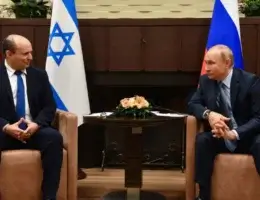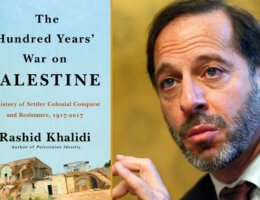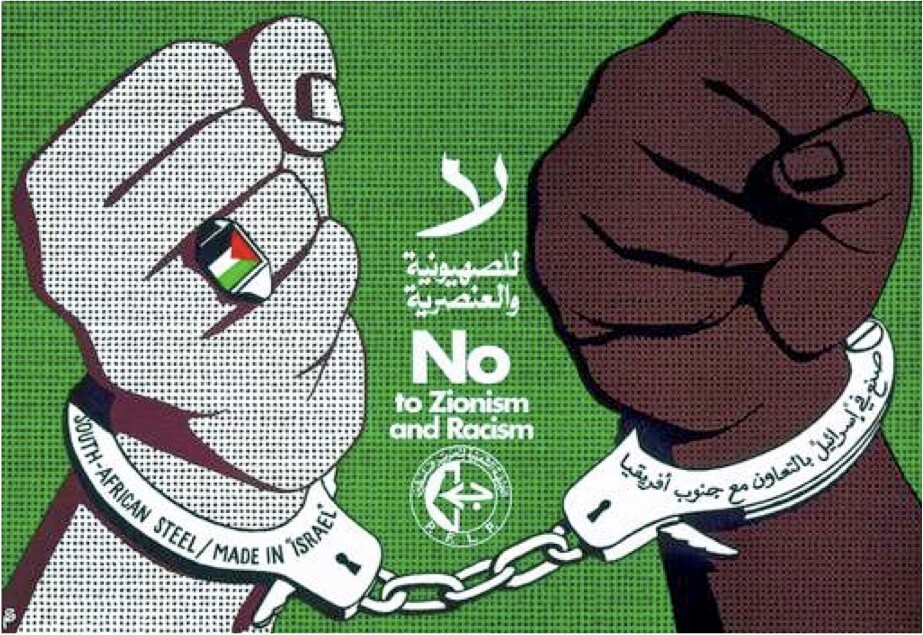Shaul Magid’s biography of Meir Kahane is timely because Kahane is an icon for the messianic Jewish leaders who are pushing the country further right. The book is Magid’s “attempt to understand his worldview.” But Kahane’s worldview is easy to understand: Jews must forever rule the Promised Land. And that extremist religious Zionism now sets the agenda for the country.
Israel is now walking a tightrope above very unpredictable waters of public opinion in the west. The overwhelming wave of opposition to Russian aggression is justifying boycott, divestment and sanctions as well as resistance as responses to the Russian military occupation, measures for which Palestinians have vainly sought western approval. And meanwhile, Israel is playing footsie with Russia so as to maintain its freedom to conduct missile attacks in Syria against Iranian targets.
How I would teach Hanukkah to Palestinian school children, or indeed to their parents? Robert Cohen asks. How comfortable would I find it to tell this story of Jews denied the right to express their culture, identity and history? What would go through the children’s minds as I explained our annual celebration of an armed Jewish revolt against an occupying power? And could I convey convincingly the idea of on-going Jewish vulnerability in Israel, the United States, or anywhere else?
Rashid Khalidi’s great great great uncle tried to tell Herzl not to colonize Palestine in 1899 but Herzl assured him that Zionists would bring Jewish acumen to the country and improve everyone’s lives. Yet after 100 years of settler colonialism, aided by superpowers, Palestinians remain undefeated. An interview with Khalidi about his new book.
Hatim Kanaaneh reviews Rashid Khalidi’s latest work ‘The Hundred Years’ War on Palestine’: “Though I have read a good number of histories of Palestine, I hardly turned a page in Rashid Khalidi’s new book that didn’t surprise me with new and well-documented information about my own history.”
In his new book “The Hundred-Years’ War on Palestine,” historian Rashid Khalidi takes off the academic gloves and breaks the spell of the Zionist nationalist dream by relating his own legendary family’s long resistance to colonialism in Palestine.
In his new book, Zionist Betrayal of Jews, Stanley Heller demonstrates that Netanyahus embrace of Trump even as antisemtism spikes is in a tradition of Zionists forgiving powerful antisemites in the west if they can serve Zionist goals in the Middle East.
The ethos of Zionism from its inception was to create a new kind of Jew, disconnected from the Jew’s former alleged diasporic weakness. Jonathan Ofir contends that this basic notion represents the weakness of Zionism, which Zionists need to relinquish in order to move Israeli society toward any kind of peaceful coexistence with Arabs.
Activists Eyad Kishawi, Max Ajl, and Liliana Cordova-Kaczerginski applaud Jewish Voice for Peace’s recent statement outlining its “unequivocal opposition to Zionism,” but raise a critique that it gives credence to the idea that Zionism emerged from Jewish life, and was not a colonial ideology developed to expand western imperialism in Palestine. “Anti-Zionism is not merely criticism of current Israeli policies or even the idea of a Jewish nation-state,” they write, “It is a rejection of an imperially-imposed, racist, settler-colonial state.”








